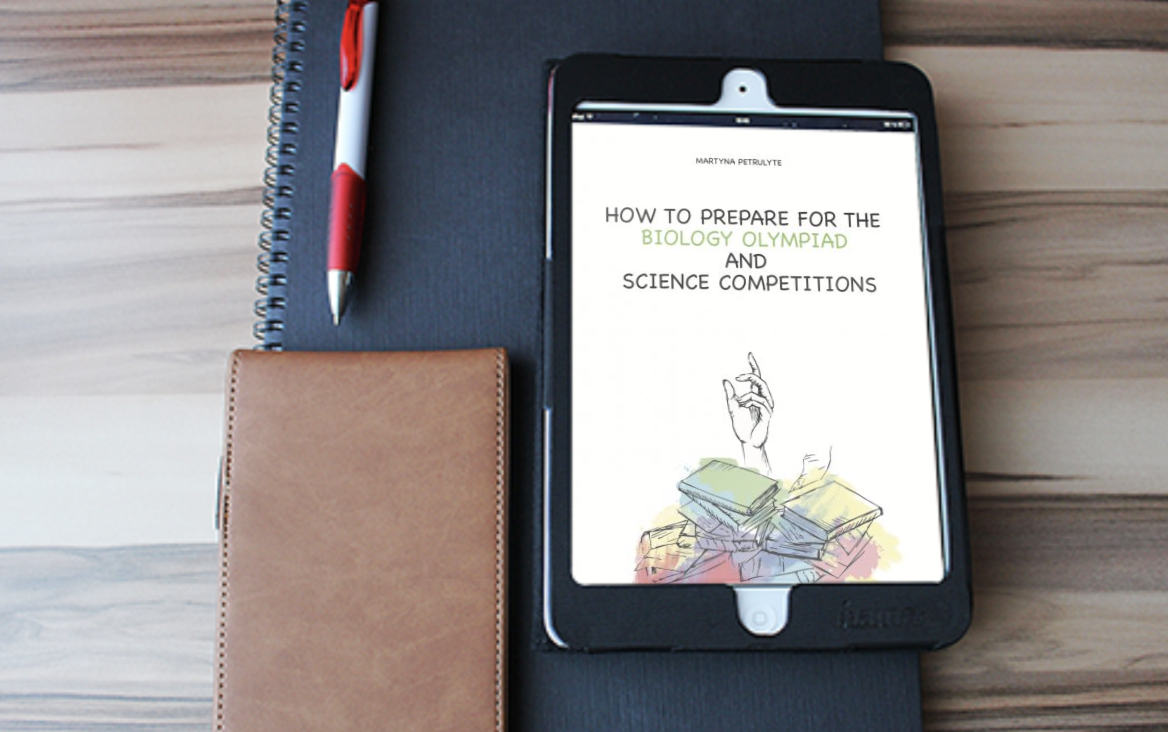Usually, we start preparing for the biology olympiad in 11th grade. I guess it’s because thisis when we start thinking about our future. Admit it! That’s when you’re looking for any way tomake your curriculum vitae (a.k.a. résumé) and personal statement look good, as applications to universities are looming on the horizon. But hey – it’s not your fault. Why the hell would you think about competing in the olympiad? Or about gaining work experience? At your age, these things probably are (and should be) the last on your list. To make matters worse, you have important exams coming up. So how on earth are you going to juggle the olympiad preparationand school work? It’ll be hard. But possible.
“A man who dares to waste one hour of time has not discovered the value of life.” Charles Darwin
Do you often find yourself saying you don’t have time to do this or that? That’s a commonexcuse I hear from many people. And it usually goes hand in hand with procrastination. Thankfully, there are some proven (and highly effective!) tactics to help you with timemanagement. Let’s get this show on the road.
GET YOUR COPY TODAY!
‘How to prepare for the biology olympiad and science competitions’
by
Martyna Petrulyte
Science competitions test a student’s level of knowledge, power of scientific reasoning, and analytical thinking outside of the regular school curriculum. A systematic approach and smart study regimen are both required to get good results in science competitions. In this book, you will find many tips and tricks for how to study and prepare for science olympiads. Moreover, you will learn how to:
• boost your motivation
• cope with failures and anxiety before the tests
• defeat procrastination
• manage your time
• memorize information quicker and more effectively
• organize your study material
• read a science textbook
• plan your study schedule
• develop practical skills
• get into and survive in the lab.
Furthermore, you will find essential test-taking strategies for tackling the olympiad exams and example-based tips on how to develop critical thinking and problem solving skills.

TIME MANAGEMENT TIPS
Below you will find some useful tips and tricks which will help you manage your time better.
-
01 Don’t count hours
I receive a ton of emails every day asking how much time one should allocate to prepare for the olympiad. To be perfectly honest with you, such questions really irritate me. When I see anything like ‘how much’, ‘how many’, ‘how long’ etc., it just boils my blood. The time doesn’t really matter. At all. So don’t ask me how many hours per week you should study. I don’tknow.
Believe me, those dreadful numbers will make the entire journey far more difficult, sometimes even unbearable. So forget about how much time you need to spend on reading and solving problems. The simple truth is just get on with your work, take initiative, and just do it. As such, the answer really boils down to “as many as you can muster”. Consistently. Focusingon little achievements along the way. And at the end of each day, you’ll probably discover that you enjoyed the time spent on biology.
On a side note, each and every one of us has different skills and knowledge before we delve into biology, therefore, the amount of time needed to prepare for the contest will vary. After all, the goal isn’t to study for a certain numbers of hours but to succeed in the olympiad.
-
02 Have a plan
Does this advice sound familiar? In school you usually have a timetable and a set curriculum. You have one for your piano classes, one for taking the rubbish out, and so on. Youhave all these different timetables but you don’t have one for the olympiad preparation, doyou? What were you thinking all this time? How will you make sure to review all the materials on time? How will you know if your progress is satisfactory if you don’t have a plan? These are just a few questions to provoke your neurons to think. Trust me, if you don’t have a plan, your preparation may fall by the wayside. Plus you won’t see whether you are moving forward orjust standing in the same place.
In our fast-paced world, finding some time to study can be very difficult and thus having a day-to-day plan of what you need to do can help you stay focused. Being organized and knowing what milestones you should reach everyday makes it much easier to prepare for the olympiad. Don’t forget to leave a buffer-time between your tasks to stay productive. To me, a short break is like a breath of fresh air for thebrain. While you’re on your break, go for a short walk or run, meditate, eat, call a friend, or doany other mind-clearing exercise that helps you recharge.
-
03 Develop self-discipline
Do you want to prepare for the biology olympiad successfully and learn as much as you possibly can in a short amount of time? Without self-discipline you won’t achieve much. Let mewalk you through the whole process. By now you should clearly know your overall goals (seesection ‘Motivation‘). But don’t just focus on long-term goals like qualifying for the IBO or winning a gold medal in the National Olympiad. More importantly, alter your habits and routines on a daily basis to achieve little goals every single day. Believe me you can be the winner every day. How does that sound? Those small daily victories will have a cumulativeeffect on your overall motivation. And when you have motivation, you don’t tend to waste timeon unimportant things. So how do you build your self-discipline?
What do you think about tracking your progress in a journal or a mobile app? I bet this will nurture your accountability. After all, who likes to see their failed or uncompleted tasks onpaper? And you won’t be able to dispute it. When you see, you care. When you don’t see, you don’t usually care. Simple as that.
There is another way to foster your self-discipline. Identify role models (for instance, a relative or a friend) who have already achieved the goal you are working towards. Ask them to help you stay on track. Just imagine how much your perseverance will grow if you have another voice encouraging and motivating you and holding you accountable for your progress?
-
04 Care about your wellbeing
Don’t even try to deny the importance of having some ways to relax and forget aboutstudying. Managing your time isn’t just about achieving all your goals. It’s about being efficient and productive without negative effects at the end. Do you think you’ll last long if you justfocus on studying? Ignoring physical exercise? Eating junk food? Isolating yourself from friends? No, my dear. Reality is quite different. For maximum performance, eat well to haveenough ATP. (Have you ever heard of this joke: “A lad walks into a pub, and asks for a pint ofadenosine triphosphate. The waitress says “That’ll be 80p then.”? LOL) Also, exercise regularly to increase blood perfusion in your brain, sleep well to consolidate all that you’ve learned, and stay positive to reduce stress and increase your endorphin levels.
I made a tremendous mistake when I was preparing for the olympiad. First, I didn’t haveany structure or plan for my studies. I had a bad mindset as the only thing I was thinking about was how to stuff as much information into my brain as possible. So to reach this goal, I skipped classes at school and instead stayed at home to study biology for endless hours (guess how(in)effective it was?). I didn’t have any rest breaks. Not to mention a bad diet and no exercise.Honestly, I ignored many of those above mentioned things. In the end, I was pretty drainedalthough not far from a silver medal in the IBO. So don’t take this tip for granted. Make sureyou have the energy, physical strength, and stamina to reach your goals. Take it easy and be good to yourself.


